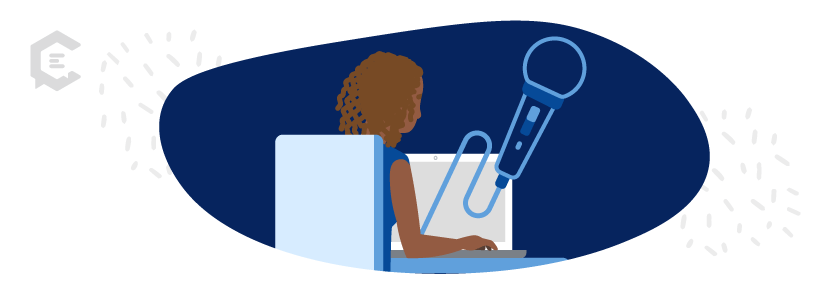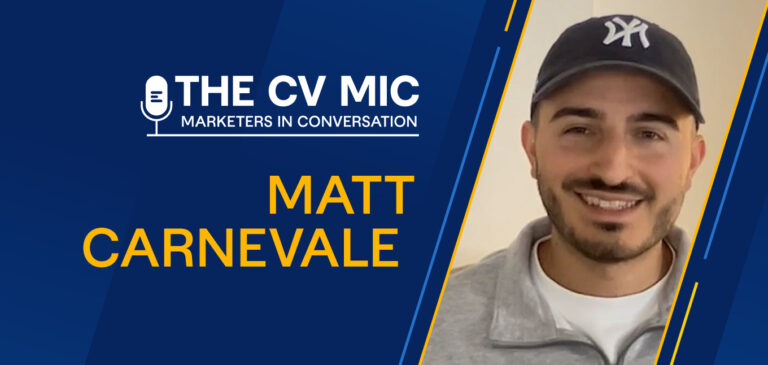Journalists have experienced many repercussions for their style and content of reporting, often putting themselves in jeopardy to provide the audience with the truth. Communication methods have radically changed recently and have created a conflicting environment of emotions, regardless of sided views.
Now more than ever, journalists need to rely on a sense of community of professional groups and organizations made up of fellow journalists for personal and professional support.
What are Professional Journalistic Groups and Organizations
Professional journalistic groups and organizations are committed to supporting and promoting the free practice of journalism and are committed to displaying high standards of ethical behavior in their reporting career.
Journalistic groups and organizations offer education on best practices in the field, offer training to develop reporting skills, and introduce new techniques in the industry. These educational opportunities are excellent for journalists just starting in their career and are even beneficial as careers progress to stay up-to-date on the latest reporting trends.
Products and services are typically offered to help create a sense of pride for the journalistic field and their involvement in the group or organization, which benefits all journalist members at various points in their careers.
Journalists are often recognized for their achievements in reporting through award programs that honor the best practices of media organizations.
Most importantly, journalistic groups and organizations promote strong ethical standards with writing and reporting, as well as hold newsrooms accountable to ensure that there is equality and that they are diverse and inclusive.
The Benefits of Getting Involved in Professional Journalism Groups and Organizations
There are many benefits that will reward journalists with developing their skillset and further establish themselves in the industry by joining a professional journalism organization or group.
Joining provides an opportunity for networking with other journalists in the field, which can be beneficial for professionals at various stages of their careers. In addition, connections that are made between new and established journalists are great mentorship opportunities. This is an opportunity to work together and learn from more senior journalists on developing projects, presentations, and collaboration in journalistic conferences.
In turn, this is a chance for senior journalists to mentor and develop their leadership skills while giving back to their industry by helping shape the next generation of journalists.
These leadership opportunities help develop and benefit journalists while their careers grow. Professional journalism organizations or groups often have board officers or volunteer leadership positions to help ensure the group operates smoothly. This is an excellent opportunity to work on communication and administration skills for career development.
Continuing education like courses, lectures, or seminars are typically offered, which can help journalists stay current on the latest industry trends that will help keep your journalistic education fresh. They can help you remain competitive in the journalistic market or even help you branch out into other industries.
Career resources are available to help with building a better resume. These resources typically can offer effective advice on crafting a resume and cover letter to compete in the job market. They also provide job listings that are generally only available to those that belong to professional journalism organizations or groups, which is a great way to target potential job postings for future opportunities.
Listing a professional journalism organization or group on a resume is an effective way to show current or potential employers your dedication to the journalistic profession and staying informed and current on reporting techniques.
Joining a professional journalism organization or group creates initiatives to give back to the community. Each organization or group may have specific socially conscious efforts to support the community, like volunteering for a local hospital, charity, or animal shelter. There are typically plenty of opportunities available to get involved and give back.
The Complete List of Professional Journalism Groups and Organizations
AAJA – Asian American Journalists Association
The AAJA features members from the United States and Asia, which was founded in 1981 by three Los Angeles Times reporters who wanted to encourage journalists of color, especially with hopes of moving into industry management positions.
AAEC – Association of American Editorial Cartoonists
The Association of American Editorial Cartoonists supports United States editorial and political cartoonists. There is a yearly convention the AAEC runs held in June for members to meet, listen to guest speakers, and participate in panel discussions. The AAEC also allows members to participate in a Cartoons for the Classroom program.
AHCJ – Association of Healthcare Journalists
The AHCJ offers journalists access to medical journal resources and a variety of conferences, webcasts, and workshops to help journalists understand the healthcare industry.
CPJ – Committee to Protect Journalists
The CPJ has been around for more than 30 years and works tirelessly over the year for journalists that are under attack or who become imprisoned. The CPJ is made up of a group of global experts who follow, monitor, documents, and take action on violations of press freedoms.
Fourth Estate
The Fourth Estate efforts are focused on helping support and nurture an active free press by promoting news reporting as a needed resource for a well-balanced society. In addition, the group works to advocate for responsible reporting and the public’s right to access trustworthy news.
INN – Institute for Nonprofit News
INN is made up of nonprofit media organizations throughout North America that work in the public’s best interest with investigative journalism. Membership for INN features journalists from across the globe.
IFJ – International Federation of Journalists
The IFH has been around for nearly a century and is a global voice for almost 600,000 journalists and media professionals. The group supports fair pay, gender equality, and strong unions for journalists.
IWMF – International Women’s Media Foundation
The IWMF supports female and minority journalists, who are an essential part of the free press industry. They offer training, fellowships, resources, and funds for a variety of reporting opportunities.
IRE- Investigative Reporters and Editors
The IRE was founded in 1973 at the Missouri School of Journalism. The IRE offers the world an opportunity to share ideas for stories, tips for gathering news, and sources to help piece the story together. They also provide a library of job opportunities, fellowships, and events to participate in.
LION – Local Independent Online News
LION represents and advocates for journalists in small towns and communities and supports independent publishers to help bring news that assists the population through digital avenues.
NABJ – National Association of Black Journalists
NABJ began in 1975, and they give professional development and training for Black journalists, journalism students, and media professionals throughout the country.
NAHJ – National Association of Hispanic Journalists
The NAHJ, which is headquartered in Washington, DC, has more than 2,000 Hispanic journalist members in the United States and the Caribbean.
NASW – National Association of Science Writers
NASW was founded in 1934 and works to support effective science journalism by providing its members opportunities with various resources and scientific journals. The members “fight for the free flow of science news.”
National Press Club
The National Press Club has more than 3500 members, with thousands of events annually, and is headquartered in Washington, DC, where over 250,000 working journalists use its resources daily.
NPPA – National Press Photographers Association
The NPPA represents and supports the “voice of visual journalists.” They provide training and promote member’s work through various annual competitions.
NSPA – National Scholastic Press Association
The NSPA, which has been in existence since the 1920s, provides various educational benefits and resources to students, teachers, and media advisors. The organization has over 1,500 member publications and is based in Minneapolis. It has a worldwide influence on the journalism profession while honoring the need for student journalism with conference events.
NLA – News Leaders Association
The NLA was formed in 2018 with the merging of the American Society of News Editors and the Associated Press Media Editors. Both organizations have a rich history dating back to the 1920s and 1930s.
Nieman Lab
The Nieman Lab advocates for collaboration and encourages innovation of thoughts and plans to help inspire journalists and the journalism profession to adapt to shifts of techniques in the business. The Nieman Lab stems from Harvard’s Nieman Foundation for Journalists, which offers journalists one of the oldest fellowship programs in the world.
NATJA – North American Travel Journalists Association
The NATJA supports journalists who cover the travel business. They bring together photographers, bloggers, editors, travel writers, and professionals representing the tourism agency through various conferences and programs.
ONA – Online News Association
The future of the news industry is digital journalism because it is the leading format for consuming news. ONA offers “programs focused on training and networking, leadership development, diversity in newsrooms, and honoring excellence.”
Poynter Institute
The Poynter Institute is a global journalistic group that honors and offers lessons based on the past and prepares for the future by staying up-to-date on industry trends through various programs and outreach. Factual journalism is a leading motivator for the group since they created the International Fact-Checking Network as well as the Pulitzer Prize-winning PolitiFact.
Regional Reporters Association
The Regional Reporters Association was founded in 1988 and serves broadcast and newspaper reporters and wire services representing local news stories based in Washington, DC.
SABEW – Society for Advancing Business Editing and Writing
The SABEW, founded in 1964, is an independent and non-profit organization that supports coverage of business and financial news. The group is based within the Walter Cronkite School of Journalism and Communication at Arizona State University. SABEW encourages “full access to financial and economic data, including information collected and distributed by governments.” In addition, the group offers various events, continuing education opportunities, and competitions to participate in.
SEJ – Society of Environmental Journalists
SEJ offers crucial assistance to journalists that represent various media platforms in their attempts to cover complicated news about the environment responsibly. SEJ unites scientists and journalists and helps inform them on developing issues and create resources of credible sources. The group also raises awareness of the importance of environmental news reporting for key stakeholders, editors, publishers, and news managers in journalism.
SPJ – Society of Professional Journalists
The SPJ gives comprehensive programs and competitions that assist journalists at every stage of their career in the industry to succeed. SPJ supports the importance of ethics in news reporting. They’ve begun collaborating with Google to inspire a positive influence with journalism in the newsroom and classroom.
WAN-IFRA – World Association of Newspapers and News Publishers
WAN-IFRA is a global network that has been around since 1948, and its mission is to protect free press and journalism.
How You Can Join a Professional Journalism Group or Organization
Before joining a professional journalism group or organization, it’s important to research and identify which opportunity aligns and fits best with your journalistic goals.
Here are some things to consider:
- Research the mission and vision for each professional journalism group or organization.
- Research the group and organization’s leadership and where they work.
- Communicate with the leaders and members for insight and discuss the professional development and career opportunities they gained from their membership.
- Explore the kind of culture that’s offered through the journalism group or organization to see if it aligns with your personality and if you’d fit in. See if it’s possible to attend an event or meeting before investing in a membership. Typically professional groups or organizations will have mixer events throughout the year for non-members to attend, which is a great opportunity to see if you’re a fit before joining.
- Professional journalism groups or organizations often have membership fees to pay to join. Therefore, it’s important to research each organization and its fees to see if the benefits are worth the cost.
Once a decision has been made on which professional journalism group or organization is the best fit, there are various ways to make it official and join. Enrollment can be made through the group or organization website or through a designated individual with the submission of the membership fee.
Claim your free CV portfolio today!






